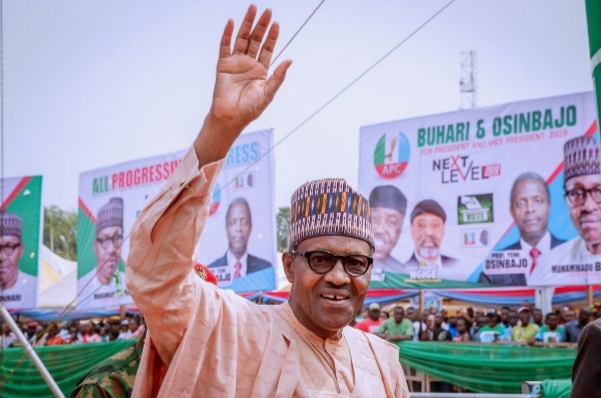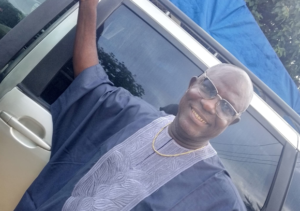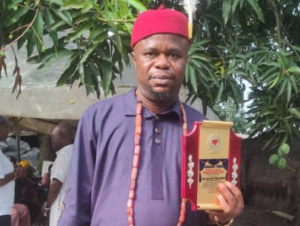2015-2023: The Years of Pestilence. By Adekunle Adekoya.
4 min read
When the All Progressives Congress, APC, came up to challenge PDP’s hold on power since 1999 in February 2013, not a few Nigerians incubated the hope that something refreshingly different will happen to Nigeria. Formed as a merger of three parties — the Congress for Progressive Change, the All Nigeria Peoples Party, and the Action Congress of Nigeria, the APC went ahead to field Major-General Muhammadu Buhari as its presidential candidate against Dr. Goodluck Jonathan of the PDP in the 2015 elections. The rest, as they say, is now history.

Before and after the 2015 elections, Buhari and the APC made a lot of promises about how they would work to ensure that life and living gets on the upward swing for Nigerians. In fact, ahead of the elections, Buhari was at Chatham House, the UK think-tank where he made a lot of proclamations regarding what he would do if elected president. In the opening paragraphs of the Chatham House speech, Buhari said: “When speaking about Nigeria overseas, I normally prefer to be my country’s public relations and marketing officer, extolling her virtues and hoping to attract investments and tourists.”
We can now ask: Was Buhari a public relations officer of Nigeria (talk less a good one) in the last eight years? He couldn’t have been, not after spending more than 237 of his 2920 days as president on medical trips outside the country. I always wondered: Didn’t this man and other Nigerian leaders feel ashamed whenever they hopped on a plane to go to another country for medical treatment? How many other world leaders come here for medicals? They could, if we had world-class medical facilities here, which our leaders have done very little to upgrade.
Insecurity was one of the problems he inherited, with the Boko Haram insurgency choking the North-Eastern part of the country, which he also spoke about at Chatham House. Many of us had thought that as a retired General who has had security training, the issue would be brought under control as soon as possible. But we were to be disappointed. Insecurity, hitherto mounting in an arithmetic progression changed gear for the geometric with terror bombings, kidnappings and wholesale slaughter of Nigerians, especially in Southern Kaduna, Benue, Niger, Zamfara, Plateau and Katsina states.
It is yet to completely abate. In fact, a bloodbath is ongoing in Plateau State as Buhari prepares to hand over. More than 130 people have have been killed as at last Wednesday in Mangu and Riyom areas of Plateau State. Before Buhari, and during his time, we spoke of, and in fact, celebrated the “Unknown Soldier” on Armed Forces Remembrance Days. Now, we speak of “Unknown Gunmen” under Buhari. I keep wondering what would the security situation have been like if Buhari were not a General?
Let me quote Buhari again: “But in the matter of this insurgency, our soldiers have neither received the necessary support nor the required incentives to tackle this problem. The government has also failed in any effort towards a multi-dimensional response to this problem leading to a situation in which we have now become dependent on our neighbours to come to our rescue. Let me assure you that if I am elected president, the world will have no cause to worry about Nigeria as it has had to recently.”
Only Buhari himself can answer whether our soldiers now have the “necessary support” and the “required incentives”. Is the world worrying about Nigeria? I am of the opinion that the world worried more about Nigeria in the last eight years than before then.
For a leader that promised action on three fronts — security, economy and corruption, the score-card after eight years has been a dismal, disappointing failure, F9 all round. Let me quote him again at Chatham House: “…The current administration has created two economies in one country, a sorry tale of two nations: one economy for a few who have so much in their tiny island of prosperity; and the other economy for the many who have so little in their vast ocean of misery.
“Even by official figures, 33.1% of Nigerians live in extreme poverty. That’s at almost 60 million, almost the population of the United Kingdom. There is also the unemployment crisis simmering beneath the surface, ready to explode at the slightest stress, with officially 23.9% of our adult population and almost 60% of our youth unemployed. We also have one of the highest rates of inequalities in the world.”
Where we stand now, Nigeria is the poverty capital of the world, with the highest number of out-of-school children. The last few months of the Buhari administration saw him punishing Nigerians mindlessly with his currency re-design policy, which was so badly implemented that the economy took a hit, and many small-scale business and enterprises caved under its effects.
If you take this and add the effects of insecurity and foodstuff prices going out of the roof, into the sky towards outer space, the Buhari years were years of pestilence. Don’t talk about corruption. The stories on that will come out someday.
Bye. We surely will not miss you.
*Adekoya is a commentator on public issues.




